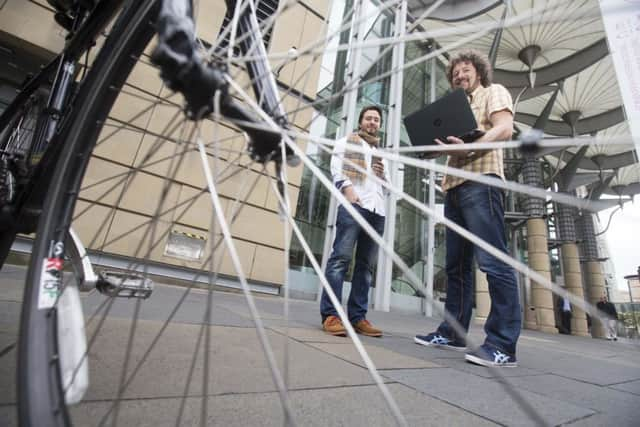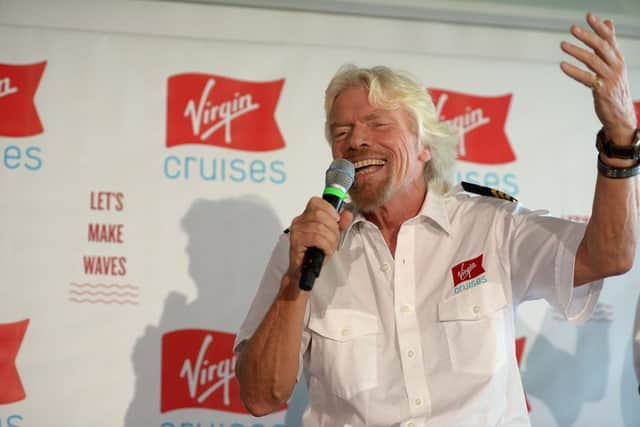How Social Bite is spreading across Scotland


On the surface, Social Bite looks like any other cafe in Edinburgh. The inside is bright and modern with a comfortable mix of tables and booths.
You could easily mistake this for a Costa or Pret-a-Manger, the cabinets filled with organic produce and salad boxes. The usual bacon rolls and range of coffees are offered from a menu board behind the counter where polite and friendly staff are at work.
Advertisement
Hide AdAdvertisement
Hide AdBut there is one major difference about this cafe, which sets it apart from the others on a crowded Rose Street - Social Bite gives all its profit to charity.


In a world where most businesses are set out to maximise profit for personal gain, owner and founder Josh Littlejohn is the exception to the rule.
“The economic system which we have at the moment, and the definition of business we have generally, is about maximising profit for private gain. There’s nothing inherently wrong with that definition, but in my opinion it’s just too narrow.
“Within that system, there can exist another type of business that allows us to express a more altruistic motivation. So Social Bite’s fundamental sense is about creating a different kind of business. Because we’re a business in every other way - the food has to be good and well priced and we have to make a profit.”
And like other businesses, expansion is one of the key focuses for Mr Littlejohn, with two cafes in Edinburgh, one in Glasgow and a brand new shop just opened in Aberdeen.
But they also have to deal with the curveballs all cafes face - like when a delivery arrives late and staff apologetically have to tell a disgruntled customer that they are out of coffee until it arrives. Well, the paying customers anyway.
One of the Social Bite initiatives is giving back, which they do directly by giving free tea or coffee and a sandwich to Edinburgh’s homeless population.
“We got it a bit wrong at first, being too laid back about it. Homeless people could come and sit in and around the afternoon, they’d kind of hang around. Some of them would be drunk - one guy would come in every day and fall asleep on the couch we used to have. We thought it’d be nice for customers to see it in action but after a few weeks our afternoon sales kind of fell off a cliff. Now they can still more or less get something for free, but they have to take it away. It struck the right balance.”
Advertisement
Hide AdAdvertisement
Hide AdThe entrepreneur first came across this idea of social businesses after reading a book by Nobel Peace Prize winner Mohammad Yunus. Mr Yunus created several different companies in his native Bangladesh, some of which went on to become large businesses, but has never owned a share in any of them. He created these companies when he saw a social problem and aimed to tackle it through business.
“Long story short, Alice (Josh’s partner and co-owner of Social Bite) and I went to visit Professor Yunus and spent a week touring his different social businesses. We were so inspired; we decided to come back to Scotland and try to set up our own.”
Learning on his feet is something Mr Littlejohn has been quite experienced at. His first foray into business was an events company, where he wanted to celebrate the world of business and so created an award ceremony.
“I had the thought to call it the Scottish Business Awards, and because of that, everyone just presumed it was something really prestigious which had been around for years. It quickly became apparent that the event would never get off the ground if there was an element of personal profit to it so at an early stage we decided to make it a charitable event, and from that decision loads of people got on board.
“Next thing you know, Bill Clinton and Richard Branson come and we’ve got George Clooney this year, because of that decision not to make profit from it. It opened lots of doors we would’ve never expected to open.”
The awards don’t just generate a “fair bit of income”. In 2014, the event was the biggest banquet dinner the UK has seen in over 400 years.
“The most amazing thing about it is that I give this little speech, generally towards the end of the night when people are quite drunk, to a room filled with successful businessmen about how business doesn’t have to be just about profit, and I’m half thinking I’m going to get bottles thrown at me.
“But without fail, people come up to me, or my inbox is flooded the next day with people asking how they can help.”